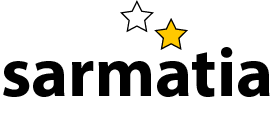The law “on amendments to the law on state budget of Ukraine for 2013 (with respect to restructuring of the budget debt)” grants the Cabinet the right to restructure the budget debt as of 1 January 2013 through issuing Treasury bills with yield up to 5 per cent and 5-year maturity. The law includes a provision permitting “voluntary” VAT refund with such bills to eligible businesses.
On the one hand, the introduction of Treasury bills will simplify and accelerate VAT refund, and, on the other, alleviate the burden on budget. Quoting after the Incomes and Fees Ministry of Ukraine, a business is free to decide whether to receive their overpaid tax in Treasury bills or in cash.
According to the data contained in the governments’ implementation of the central budget for 2012, the budget debt that may be covered with bills is UAH 4.4 billion. The projected VAT refund covered by the law is as much as UAH 59.5 billion (close to USD 7.5 billion). In total, this year alone, the government was granted the right to issue a quasi-currency equivalent of at least USD 8 billion. But according to experts, these are only estimates. In fact, the government is free to determine the how much bills it can issue this way.
Since the law granting the government the right to issue Treasury bills is formally an amendment to this year’s budget, the solution is to be effective only until year-end. However, it is possible that it will stay in Ukraine for good as long as (and if) the financial system survives it.
Treasury bill – another hryvnia
According to the Ukrainian economists, the parliamentary decision means that two “legal tenders” will be functioning at the Dnieper River soon – the official hryvnia, issued by the National Bank of Ukraine and subject to specific rules, and Treasury bills issued by the government in unlimited quantities.
The Chairman of the Committee of Economists of Ukraine, Andriy Novak, has no doubt that the bills will be the administration’s tool dividing the businesses into “their own” receiving VAT refund in cash, and into the “tolerated remainder”. The latter group’s last resort to get anything at all will be the theoretically “voluntary”, and in fact compulsory, seeking of the bills.
– This is a clear signal that from now the manual regime of the Ukrainian government will decide to whom pay cash and quasi-cash, Andriy Novak asserts.
The former finance minister, Viktor Pynzenyk, is also negative about the idea.
– The option of VAT refund with „pieces of paper” is tantamount to seizure of company resources for up to 5 years. In such circumstances, only exporters with large profitability resources will be able to operate and those that will receive true cash instead of bills, Pynzenyk states.
The amendment opens a true Pandora’s box. He points out that from now on accepting any government orders will involve the risk of receiving a piece of paper instead of true payment, which the company will be unable to reject. Looking ahead, the authorities are bound to be extremely reluctant to give up the newly introduced “temporary” solution in the upcoming years.
– It is like going back to the early 1990s, when the wages were paid either with buckets or nothing at all. The very idea that the government should issue bills is straight from the civil war, when everyone prints money for themselves. This leads to hyperinflation and disintegration of the economy – Sergei Pashinsky, MP of “Batkivshchyna ” opposition faction, comments.
According to the experts’ estimates, the idea will cost the businesses losing even 50 per cent of the bills’ face value. This is the discount rate on sale of the securities in the secondary market when the company will need to turn them into cash before maturity. And all this because interest on Treasury bills is absolutely unattractive. While 5 per cent is more than today’s official inflation rate in Ukraine, it is much less than 20 per cent that banks offer bodies corporate on annual deposit in UAH. Besides that, the government itself admits that inflation is expected to rise in the upcoming months. So, businesses are going to lose at the very start.
Whether the 5-year statutory maturity will be kept is not clear either. Further maturity extensions with successive statutory amendments are much more likely.
Employers also oppose the idea
The new solution was unwelcome not only by the parliamentary opposition and most economic experts – the party led by Viktor Yanukovych also shared similar views. The veto was filed by the Federation of Employers of Ukraine (FEU), chaired by an oligarch, Dmitry Firtash, having close ties with the authorities. In the organisation’s opinion, the parliamentary solution demonstrates the intention to deprive the business of at least UAH 20 billion.
The proposed issue of Treasury bills with non-market rate means, despite a formal voluntary clause, compulsory freezing of the state’s payables to businesses for five years. This will cause further deterioration of the financial position of businesses and the already modest exports. The consequence will be such that the negative trade balance of Ukraine will furthen deepen and the hidden deficit will rise.
We are faced with the paradox. While all countries stimulate exports, Ukraine does everything to render its own unprofitable – the Federation officially asserts.
Even the unit of legislators serving the parliament and assessing the Treasury bill draft raised serious doubts. First and foremost, they noted that no structure or amount of the “budget debt” to be covered with the bills was provided as of 1 January 2013. Secondly, the very idea of the government issuing Treasury securities according to its self-made rules is against the Constitution, which says that the right of specification of the issues and circulation of state securities is reserved for the parliament.
Yet, the Incomes and Fees Ministry indirectly confirmed that concerns over unequal treatment of businesses are legitimate. It announced that businesses availing themselves of the privilege of automatic VAT refund, and it so happens that these are predominantly companies owned by the oligarchs affiliated with the ruling party, will be receiving VAT refund in cash and not in bills. To make matters worse, they also announced further tightening of the screw to the businesses. “Not only shall we not reduce the control of the accuracy of the tax returns, but we shall also intensify our efforts to prevent fictitious VAT overpayments refunds” – the ministry’s official announcement says.
Treasury bills instead of replacements?
The authorities were so enthusiastic about the idea that the government can uncontrollably print extra money as Treasury bills that they are not going to confine it to businesses.
The MP of the ruling Party of Regions, Evgeniy Morozenko, as universally commented – at the instigation of the government and not upon his own initiative – submitted a new bill of another use of Treasury bills. It suggests that (just like in the case of businesses) the state change the payment of budget payables to people with disabilities.
According to the effective law, people with disabilities are entitled to material state aid such as special cars, electric wheelchairs, replacements, special communication equipment, and sanatoria. However, as Morozenko notes, the government delivers mere 30 per cent of its payables. It then suggests that instead of material aid, for which there is shortage of resources, the state settle its payables with people with disabilities just like with businesses – with Treasury bills issued by the government.
Michał Kozak, ObserwatorFinansowy.pl
http://www.obserwatorfinansowy.pl/wp-content/uploads/2013/12/Otwarta-licencja.png
















































